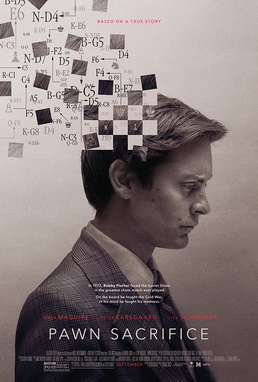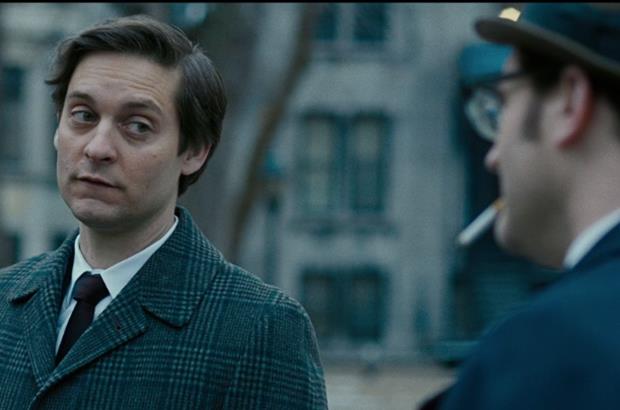 With the release of Pawn Sacrifice, viewers continue to see a progressive trend in Hollywood cinema. For the past forty years, a large portion of its filmmakers have been driven by the need to understand the causes of frailty in the human condition. Coppola’s The Conversationbegan this movement in Hollywood. These films filter all creative choices through a single welldefined motive for the character. While independent filmmakers argue that this is the cause of Hollywood’s reductive character studies, they can certainly not dispute the fact that these films (Pawn Sacrifice included) are potent, relatable, and powerful. The effect is a blurring of the line between viewer and character.
With the release of Pawn Sacrifice, viewers continue to see a progressive trend in Hollywood cinema. For the past forty years, a large portion of its filmmakers have been driven by the need to understand the causes of frailty in the human condition. Coppola’s The Conversationbegan this movement in Hollywood. These films filter all creative choices through a single welldefined motive for the character. While independent filmmakers argue that this is the cause of Hollywood’s reductive character studies, they can certainly not dispute the fact that these films (Pawn Sacrifice included) are potent, relatable, and powerful. The effect is a blurring of the line between viewer and character.
The story begins in media res with an amalgamation of international news clips and bytes describing imminent downfall of our hero, Bobby Fischer (Tobey Maguire), a chess prodigy who falls prey to the pressures of the Cold War from both sides. He loses his sanity in a match against Boris Spassky (Liev Schreiber). The story then travels back in time to when Bobby was young. We see the conditions that create Bobby’s grandmaster mind: an absent father and an irresponsible mother. He finds an escape from this adolescent hell in the game of chess. The story continues with a montage of victories that propel Bobby to grandmaster status, becoming the youngest grandmaster chess player in history. Quite a feat. Quite a lot of pressure. Pressure that proves too much for Bobby, who quits the game all together.
If you spend a life perfecting one craft, you’ll quickly find that there are not many other things that you are good at. By this point, Bobby’s mental stability is long gone. With the help of a chessenthusiast/lawyer (Michael Stuhlberg), and a grandmasterturnedpriest (Peter Sarsgaard), Bobby Fischer returns to the circuit in to reclaim his throne as chess master. The trio travels around the world competing for the crown, but Fischer’s ability to survive a match, and the Cold War pressure surrounding it, has devastating effects on his mental health. The symbolic meaning of a defeat against the Russians proves to be a very powerful tool in Fischer’s ability to keep his head during a match. The use of sound design to show Fischer’s inability to cope with the pressure of the games puts us in his position. We, like him, are unsure whether or not his phone is bugged or if he is being watched. Though these cinematic choices, we become Fischer. As his psychopathy deepens so, too, does ours.
In a way, the structure of the film is like that of chess itself. It begins simply, each player making, predicting, and preventing moves, calm and calculated. As the game progresses, the attachment deepens and the psychological affect of unforeseen moves become more powerful. Eventually, the game becomes more psychological than physical, and the battle becomes one of wit and cleverness. For this reason I can not approve of the structure of the opening. It completely destroys everything that the film stands for. Destroying the elegant structure created by the slowbuilding and calculated moves that it tries to recreate.
While the story may be a bit lackluster, what this film accomplishes is an in-depth character study of a chess prodigy torn by Cold War paranoia. This film creates an atmosphere that justifies Fischer’s irrational behavior. Its development of a psychological attachment to the character is where it shines brightest. A valiant effort.
Score: 7.5/10
Written by Jack Siberine

